JM Dematteis and Mike Zeck’s presentation of death and rebirth, and how they often mirror each other is one of the themes that elevates “Kraven’s Last Hunt” from a great storyline to a legendary one.
One of the most controversial aspects of the arc is its ending – or more accurately, Kraven the Hunter’s ending, since it actually occurs in the fifth chapter (Amazing Spider-Man #294). After Spider-Man emerges from his grave plot vowing vengeance on Kraven for burying him alive for two weeks, Kraven is resigned to let Spidey punish him and ultimately promises that he had just went on his last hunt. When Spider-Man then takes off to deal with the Vermin, who is loose on the streets of Manhattan, a very self-satisfied Kraven lies in a coffin with a rifle and kills himself, thus being good on his word.
Some have concluded that the arc glorifies suicide as a means to the end. Kraven had accomplished all that he wanted to and life and rather than hang around and be subjected to future failures and disappointments, he ends it in all in the click of a trigger. This theory was so pervasive, a few years later, Marvel released a DeMatteis /Zeck sequel to KLH, “Soul of the Hunter,” which featured Kraven’s ghost seeking absolution for what he did to Spider-Man and himself. The story was mostly panned by readers for the way it tapdanced around the dark subject matter in KLH.
For me, I don’t think KLH glorifies suicide as much as it uses it as a device when the events leading up to Kraven’s last moment are compared to Spider-Man’s journey from six feet under back to the land of the living.
We’ve seen Spider-Man/Peter Parker overcome great odds before, whether it be him lifting tons of steel over his head to save his Aunt May, or him using his quick wits to take down the unstoppable Juggernaut. But in the case of KLH’s fourth chapter, Web of Spider-Man #32, Peter’s plight is considerably different than those earlier experiences. In those other cases, Peter mostly had to overcome external forces to survive/be victorious, while in KLH, his battle was more internal. Not only was Peter trying to dig himself out of the grave, but he also had to accept that there was still life above ground worth living. In probably the most powerful sequence in Web of #32, Peter inches closer and closer to the surface, where he uses his love for Mary Jane to pull himself above ground.
I found this choice by DeMatteis to be significant, because it wasn’t as if MJ was in any kind of real danger with Peter being “dead.” Heartbroken and devastated, I’m sure, but it wasn’t like Kraven was out there in a black Spider-Man suit hunting down Peter’s family. Or like in the case of Aunt May during “If This Be My Destiny,” she didn’t need Peter to pull through to survive and illness and disease. Instead, Peter uses Mary Jane as inspiration to be reborn because he wants to carry on with their life together, even if he’s now been emotionally scarred by this experience.
It speaks to Peter’s inability to ever truly be content with his accomplishments. I’ve said before that he is his own harshest critic. And a lesser man, or a more content one, would have probably been resigned to stay buried in the Earth, since he had already accomplished so much as a hero. But Peter isn’t afraid of death, as much as he feels he still has so much to prove – to himself and others. Peter has no problem dying if it comes at the hands of a great sacrifice for a loved one. What he never wants to do is die in vain.
By the same philosophy, in chapter five, Kraven has reached a point of contentment. He too, no longer fears death, because he’s accomplished what he set out to for his life. He is, at the very core, a hunter, and he was able to successful hunt, capture and “kill” Spider-Man, even if it was just temporarily, and then put on his mask and BE Spider-Man for two weeks, living out the life of a hero. There was no guilt from a dead Uncle Ben hanging over Kraven, or the love of another person internally persuading him to choose life over death. He reached, in his mind, a natural point of expiration, and chose to take it into his own hands, rather than let things play out in a way that could then hypothetically neutralize or destroy his state of contentment.
The “in his mind” component of my last statement is key. During a recent mini-back-and-forth on Twitter, I asked DeMatteis if he felt Kraven truly reached “superiority” during the arc and he told me that yes, “in his mind,” but as he DeMatteis was writing it, HE never thought that was the case for his character. With that distinction in mind, from my vantage, Kraven’s suicide wasn’t glorified by this story. It does however show how our own personal demons and salvations can sometimes impact our wills to live in diverging ways.

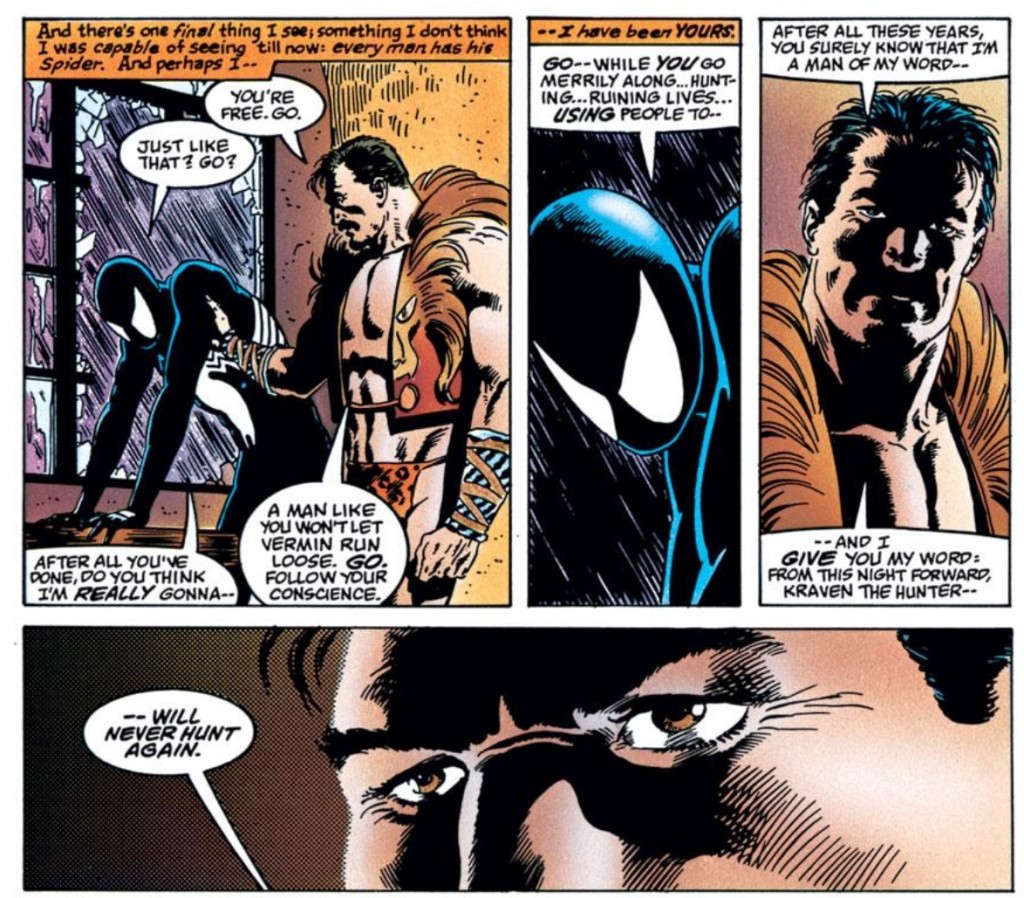
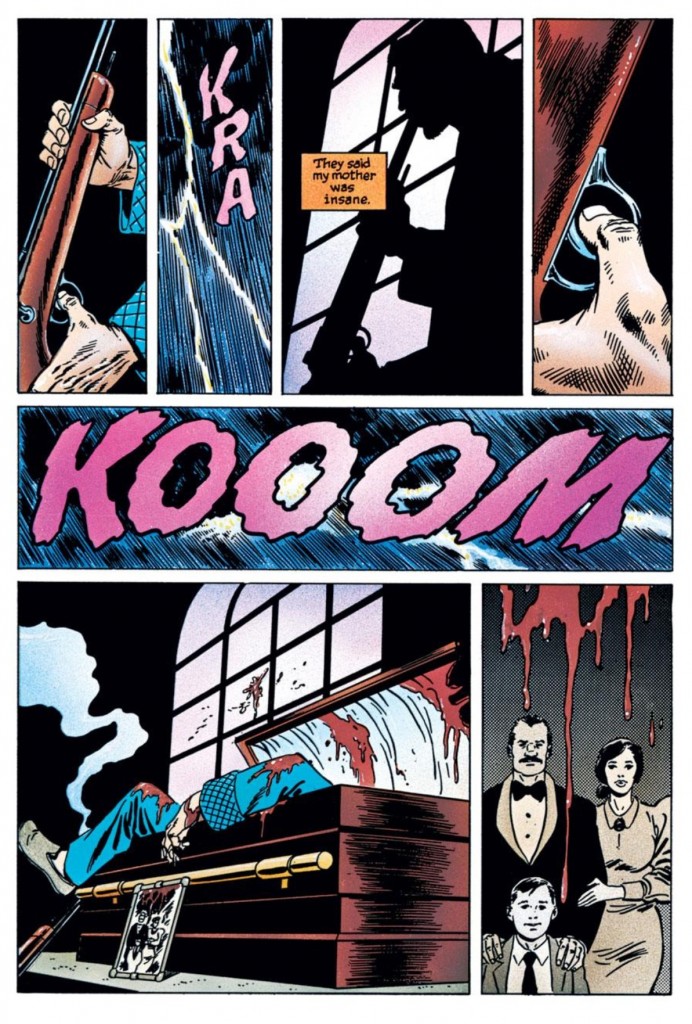
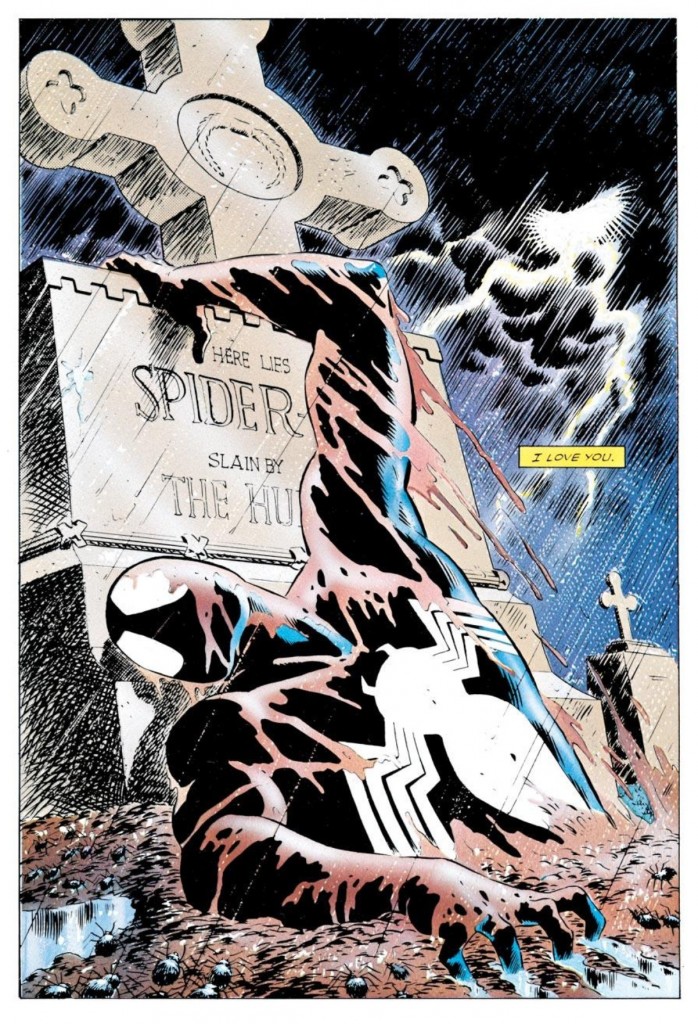
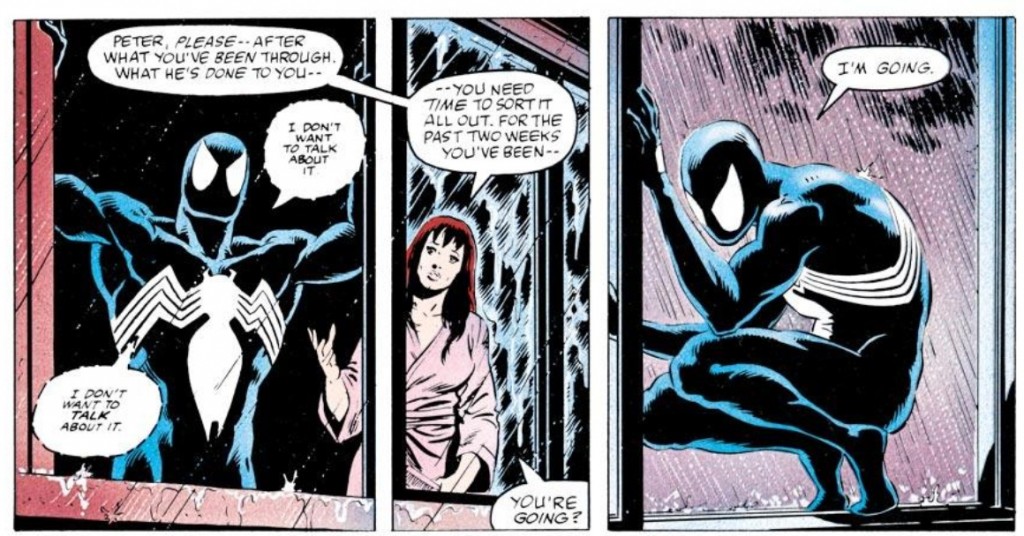
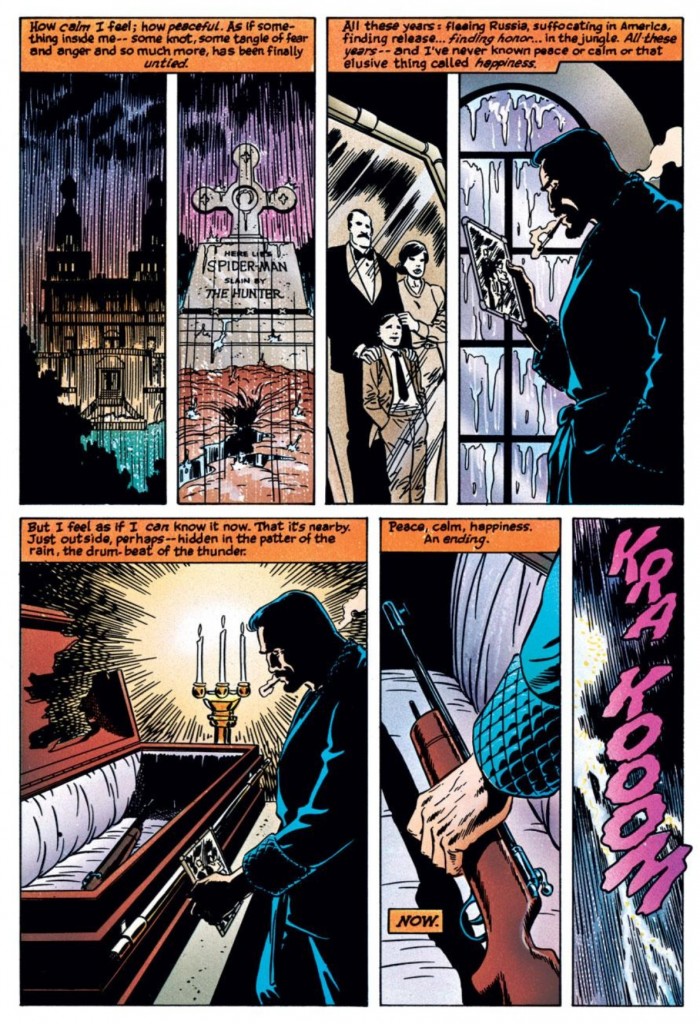


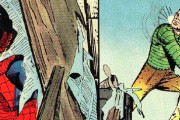

What a strange coincidence. I just blogged about my memories of Kraven’s Last Hunt. Then the same day I do some searches for spidey images unrelated to Kraven and discover your blog and this post. It’s like a parallel universe.
Awesome! And nice write up. Glad you serendipitously stumbled on my site!
This by far was Spideys greatest battle. I rank only his recent switch with Doc Ock (Superior Spiderman) even close to being as impactful as this war with Kraven. Great post as well. I have been a fan of this blog for sometime! Keep em coming!